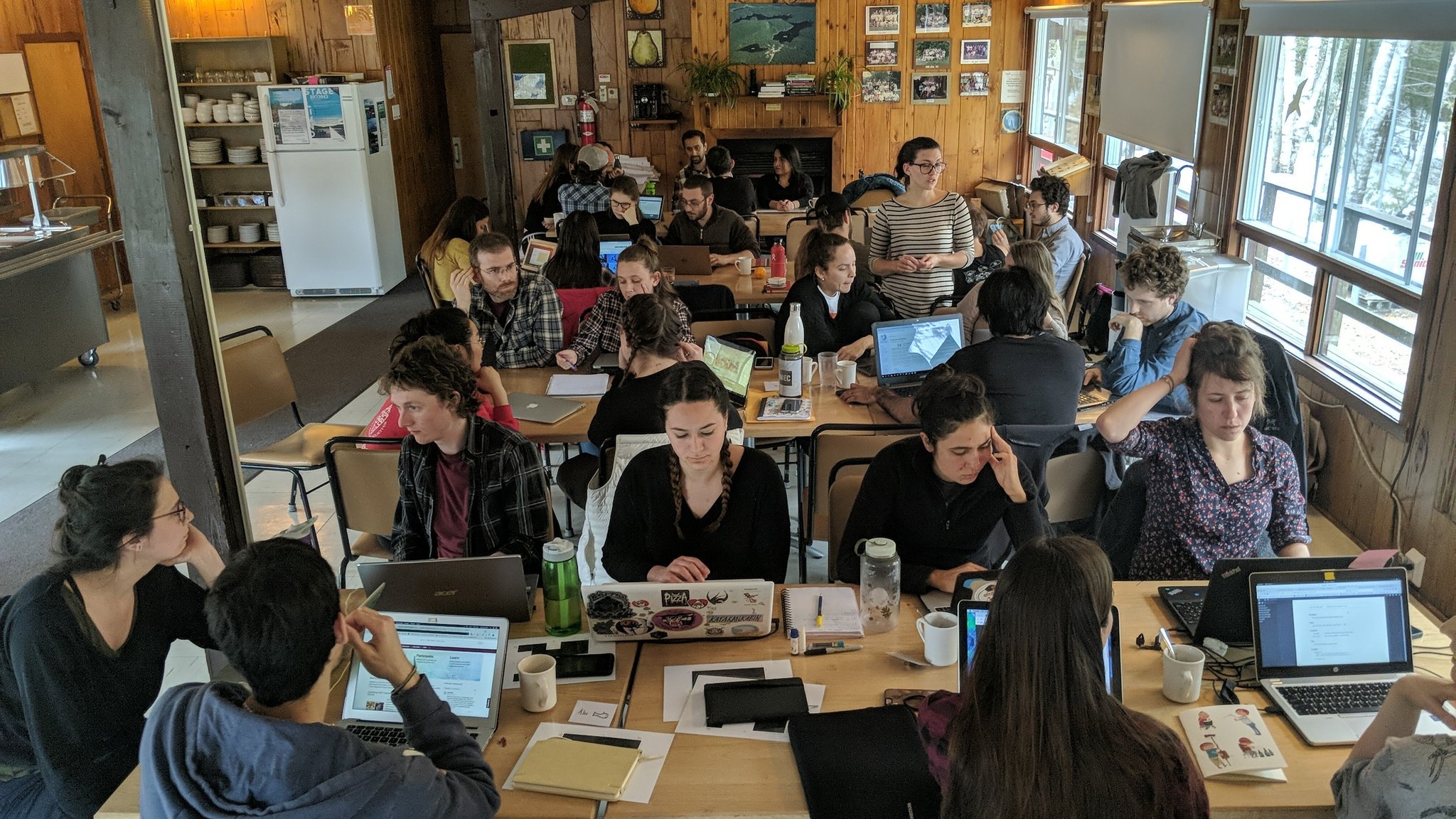BIOS2 runs two annual summer schools in computational biodiversity science. Data-driven ecological synthesis course is offered in May each year and the Summer school in biodiversity modelling is in August.
Although these courses are intended for graduate students, they are also open to undergraduate students, postdocs and professionals. The courses provide a high-level overview of concepts, methods and questions for students and professionals interested in computational ecology.
Fellows are required to assist at least one (but preferentially both) intensive classes. Summer schools are a central activity to group all participants, foster exchanges and networking and create a sense of affiliation within the program.
Data driven ecological synthesis
Data-driven ecological synthesis (DDES) intensive course is offered by Université de Montréal. This week-long class aims to train ecologists in state-of-the-art techniques for data management and analysis for synthesis research. It gives the tools and skills needed to interact with, manage, clean, and analyze data in a transparent and reproducible way.
Financial support:
BIOS2 fellows have an open access to the summer schools and can use their travel grant to help with transportation fees.
Application process:
- The DDES will be announced in the BIOS2 website and in the Poisot lab website during the fall each year.
Summer school in biodiversity modelling
The 2020 edition of the Summer school in biodiversity modelling will take place at Orford Musique (Orford) from August 23rd to 28th. More information will soon be available here.
The Summer school in biodiversity modelling is an accredited course offered by Université de Sherbrooke. This class introduces participants to the most recent modelling approaches in the field of biodiversity sciences such as classic species and joint distribution modelling, spatially explicit simulations for biodiversity analysis and ecological network analysis. The course brings the students to work with various biodiversity modelling techniques and understand the limits of different types of ecological data while focusing on critical thinking about methods.
Financial support:
BIOS2 fellows have an open access to the summer schools and can use their travel grant to help with transportation fees. BIOS2 scholarships will be available for guest participants to cover some of the costs of the intensive courses.
Application process:
- The Summer School in Biodiversity Modelling will be announced in the BIOS² website and the Université de Sherbrooke website during the winter each year.
LEARN MORE ABOUT BIODIVERSITY MODELLING COURSE
Photo: Timothée Poisot

